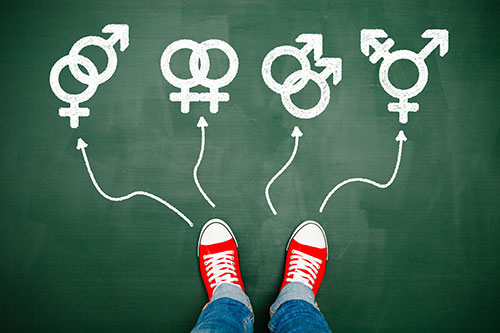Sexual health education is a crucial component of comprehensive health education, yet it is often lacking in many school curriculums, particularly when it comes to LGBTQ+ youth. It is essential that we provide LGBTQ+ youth with accurate and inclusive sexual health education in order to ensure that they have the knowledge of medicines like Fildena 150 and Vidalista 60 or resources they need to make informed decisions about their sexual health and well-being.
The Importance of Sexual Health Education for LGBTQ + Youth
Addressing Health Disparities: LGBTQ+ youth face unique health disparities, including higher rates of sexually transmitted infections (STIs) and HIV. Providing comprehensive sexual health education can help address these disparities by promoting safer sex practices and increasing access to sexual health resources.
Promoting Self-Acceptance: Sexual health education can play a role in promoting self-acceptance and reducing shame and stigma surrounding LGBTQ+ identities. It can also help LGBTQ+ youth better understand their bodies and desires, and feel more comfortable expressing them.
Increasing Access to Resources: By providing accurate and inclusive sexual health education, we can ensure that LGBTQ+ youth have access to the resources they need to maintain their sexual health. This includes information about contraception, STI testing and treatment, and resources for HIV prevention and treatment.
Encouraging Healthy Relationships: Sexual health education can also help LGBTQ+ youth understand the importance of healthy relationships and consent. This includes teaching youth about communication skills and how to recognize and avoid unhealthy or abusive relationships.
Challenges in Providing Inclusive Sexual Health Education
Providing inclusive sexual health education for LGBTQ+ youth can be challenging due to a variety of factors. These may include:
Lack of Resources: Many schools do not have access to comprehensive sexual health curriculums that are inclusive of LGBTQ+ youth. This can make it difficult for educators to provide accurate and inclusive information.
Stigma and Discrimination: Stigma and discrimination against LGBTQ+ individuals can make it difficult for educators to provide inclusive sexual health education. Educators may feel uncomfortable or unprepared to address LGBTQ+ issues in the classroom, or may face opposition from parents or administrators.
Limited Professional Development: Educators may not have received adequate training or professional development on how to provide inclusive sexual health education. This can lead to a lack of confidence or understanding when it comes to addressing LGBTQ+ issues in the classroom.
Ways to Support LGBTQ+ Sexual Health Education
There are a variety of ways to support LGBTQ + sexual health education and ensure that youth receive the information and resources they need:
- Advocate for Comprehensive Sexual Health Education: Advocating for comprehensive sexual health education that is inclusive of LGBTQ+ youth can help ensure that all youth have access to accurate and inclusive information.
- Provide Professional Development: Providing educators with professional development on how to provide inclusive sexual health education can help increase their confidence and understanding.
- Work with Community Organizations: Working with community organizations that support LGBTQ+ youth can provide educators with additional resources and support.
- Encourage Parental Involvement: Encouraging parental involvement in sexual health education can help ensure that parents are informed about the content being taught and can provide support at home.
Providing comprehensive sexual health education that is inclusive of LGBTQ+ youth is essential for promoting the health and well-being of all youth. By addressing health disparities, promoting self-acceptance, knowledge of medicines like Tadalista 20 and Cenforce 200 increasing access to resources, and encouraging healthy relationships, we can help ensure that LGBTQ+ youth have the knowledge and resources they need to make informed decisions about their sexual health. By advocating for inclusive sexual health education, providing professional development, working with community organizations, and encouraging parental involvement, we can create a culture that supports and celebrates sexual diversity.

